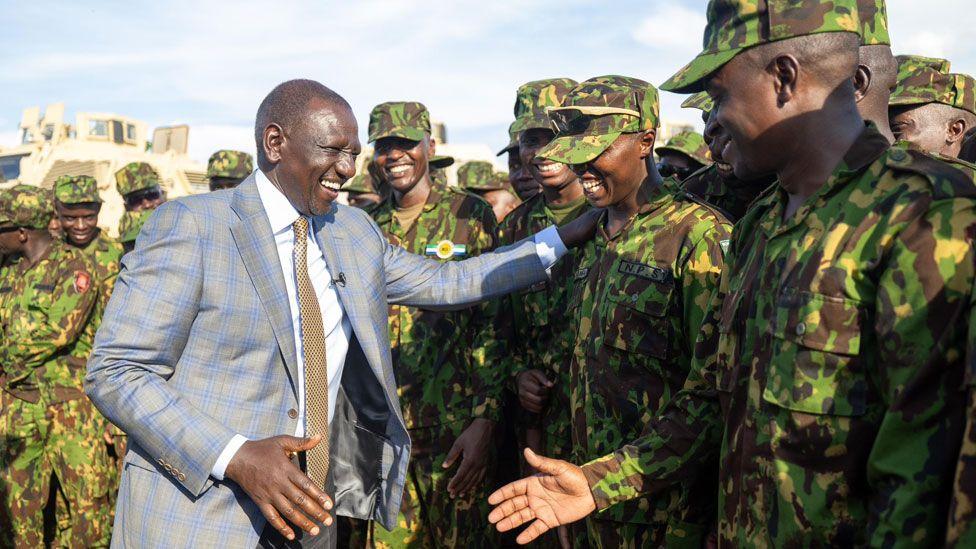Kenya to send 600 more police officers to Haiti
3 min read

Kenya has announced its commitment to send an additional 600 police officers to Haiti within the next few weeks, bolstering efforts to combat the gangs that have taken control of significant portions of the capital, Port-au-Prince, and surrounding areas. This deployment will raise the total number of Kenyan officers in Haiti to 1,000, following an initial deployment that began in June to assist the struggling Haitian police force.
During a recent visit to Haiti, President William Ruto expressed his support for transforming the current Kenya-led security mission into a full United Nations peacekeeping operation. This shift could enhance international efforts to stabilize the country as violence continues to escalate. Alongside Kenya’s deployment, several other nations have collectively pledged at least 1,900 troops to assist in restoring order.
The UN has reported a surge in violence, with gangs expanding their influence into new areas, leading to further displacement of the population. A UN human rights expert has highlighted the urgency of the situation, indicating that the current mission is inadequately equipped to handle the challenges on the ground.
The UN Security Council is expected to convene by the end of the month to discuss the renewal of Kenya’s mandate for another year, which would set the stage for a more comprehensive UN mission in 2025. This renewal could also provide increased funding and resources, crucial for overcoming the operational challenges faced by Kenyan officers in Haiti.
President Ruto praised the Kenyan police for their efforts and successes over recent months. Addressing the officers stationed in Port-au-Prince, he said, “There are many people who thought Haiti was mission impossible, but today they have changed their minds because of the progress you have made.” He reassured them of his commitment to enhance their equipment and resources.
Currently, nearly 400 Kenyan officers are actively patrolling and collaborating with Haitian forces to protect citizens and restore security. Ruto noted that the upcoming contingent of 600 officers is undergoing redeployment training and will be ready for mission in a matter of weeks.
Despite these efforts, criticism has emerged regarding the effectiveness of the international response to gang violence. The UN human rights expert emphasized that the mission lacks essential resources, including helicopters, night vision goggles, and drones, which are vital for effective operations against heavily armed gangs.
William O’Neil, the UN expert, pointed out that the Multinational Security Support Mission (MSS), authorized by the UN Security Council in October 2023, has deployed less than a quarter of the planned contingent. He also raised concerns about ongoing arms smuggling into Haiti, which has empowered gangs to expand their territorial control despite an international embargo.
O’Neil’s recent visit to southeastern Haiti revealed significant challenges faced by local police forces. He quoted a policeman in Jérémie as saying, “The situation borders on the impossible. We have to learn to walk on water.” The increasing prevalence of sexual violence and the displacement of over 700,000 people further underscore the dire humanitarian situation.
“This enduring agony must stop. It is a race against time,” O’Neil asserted, stressing the need for immediate and intensified efforts to address the crisis. He emphasized that viable solutions already exist, but they require urgent implementation.
To effectively counter the gangs, O’Neil urged the international community to equip the MSS with the necessary tools to support the Haitian National Police. He highlighted the importance of implementing the measures set forth by the UN Security Council, which includes sanctions and a targeted arms embargo.
As the situation in Haiti continues to deteriorate, the commitment from Kenya and other nations may provide a crucial lifeline, but the call for enhanced resources and a more robust international response remains critical to restoring stability in the region.